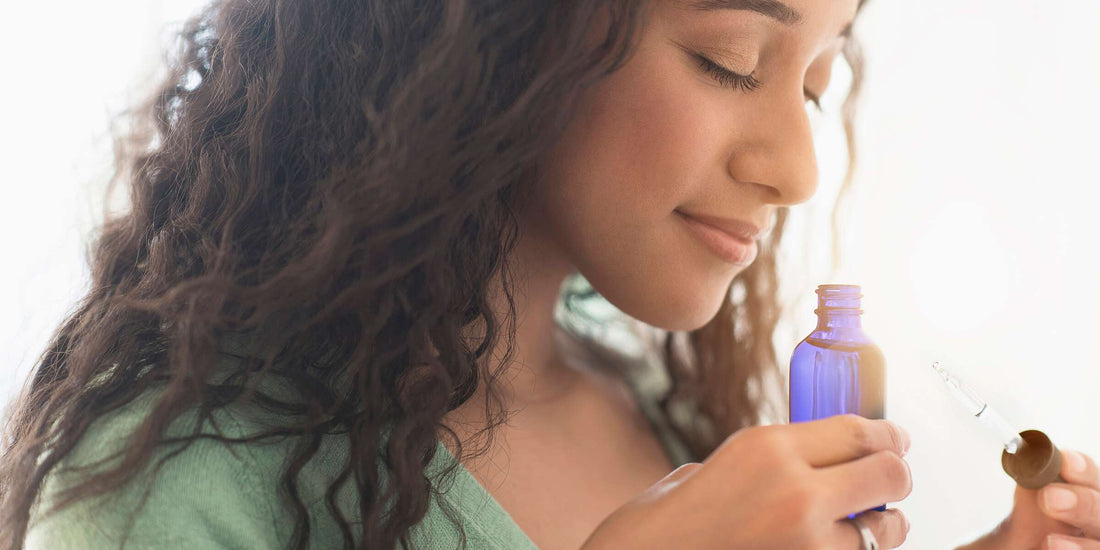Essential oils and other fragrant compounds are used in aromatherapy, a type of complementary medicine, to support both physical and mental health. The custom has been established for a very long time and is thought to have started in ancient Egypt. Today, aromatherapy is becoming more and more well-liked as a supplemental treatment for a range of illnesses, including mental health issues. Some of the advantages of aromatherapy for mental health are listed below.
Reduces Anxiety and Depression
It is well known that aromatherapy can help with anxiety and depression symptoms. The hormone cortisol, which is linked to stress, has been proven to be decreased by the usage of essential oils like lavender, bergamot, and chamomile. These oils' relaxing properties can lessen the signs of anxiety and despair and raise mood levels generally.
One of the most popular oils for anxiety and sadness is lavender in particular. The relaxing effects of its aroma on the body and psyche can aid in promoting relaxation and lowering anxiety. According to research in the Journal of Alternative and Complementary Medicine, participants' anxiety levels decreased after 15 minutes of breathing lavender essential oil.
Improves Sleep
Also demonstrated to lengthen and increase the quality of sleep is aromatherapy. A better night's sleep can be encouraged by using calming and sedative essential oils like lavender, chamomile, and ylang-ylang. Before going to bed, inhaling these oils or putting them in a diffuser will help relax you and encourage restful sleep.
One study found that breathing lavender essential oil for 20 minutes before bedtime helped people with insomnia sleep better. The study was published in the Journal of Alternative and Complementary Medicine. Another study indicated that postpartum women who inhaled a mixture of lavender, chamomile, and Neroli essential oils experienced better sleep quality and duration.
Boosts Cognitive Function
Also demonstrated to enhance cognitive performance, including memory, attention, and concentration, is aromatherapy. It has been demonstrated that using essential oils like rosemary, peppermint, and lemon can boost mood and cognitive function.
According to a study that appeared in the International Journal of Neuroscience, inhaling rosemary essential oil helped participants' moods and cognitive function. Another study indicated that athletes' exercise performance and cognitive function were enhanced when they inhaled peppermint essential oil, which was reported in the Journal of the International Society of Sports Nutrition.
Relieves Headaches and Migraines
Furthermore helpful for treating headaches and migraines is aromatherapy. Essential oils with analgesic and anti-inflammatory qualities, such as peppermint, lavender, and eucalyptus, can help relieve pain and inflammation.
According to research in the European Journal of Neurology, inhaling peppermint essential oil helped participants experience headaches less frequently and more subtly. Another study that appeared in the International Journal of Neuroscience discovered that inhaling lavender essential oil helped participants' migraines feel less severe.
Alleviates Symptoms of PTSD
Also demonstrated to reduce the signs of post-traumatic stress disorder is aromatherapy (PTSD). It has been demonstrated that the relaxing and grounding effects of essential oils like frankincense, ylang-ylang, and lavender can aid in lowering anxiety and fostering relaxation.
According to a study in the Journal of Alternative and Complementary Medicine, frankincense essential oil inhalation helps PTSD patients with their anxiety and depressive symptoms. Another study found that breathing ylang-ylang essential oil helped individuals with cancer-related PTSD improve their mood and reduce anxiety. This study was published in the Journal of Clinical Nursing.
How to choose the right essential oils for your mental health needs
There are so many essential oil possibilities that picking the best one for your mental health requirements can be difficult. It's crucial to take into account your unique symptoms, requirements, and potential allergies or sensitivities. Some essential oils are more invigorating and exhilarating. Certain essential oils are recognized to be peaceful and soothing. You can find out which essential oils are ideal for you by speaking with a doctor or a trained aromatherapist.
In conclusion, using aromatherapy to support mental health and well-being is a safe, efficient method. Aromatherapy can be a complementary therapy to aid with symptoms of anxiety, depression, sleep troubles, cognitive problems, headaches, migraines, or PTSD. It's crucial to remember nevertheless that aromatherapy shouldn't be used in place of expert medical care. It is crucial to speak with a licensed healthcare physician if you are displaying any mental health concerns.
FAQ’s
Q: Is aromatherapy safe for everyone?
A: Aromatherapy is generally considered safe for most people when used properly. However, some essential oils can be toxic or cause skin irritation, so it's important to dilute them properly and avoid using certain oils if you have allergies or sensitivities. It's also important to consult with a healthcare provider before using aromatherapy if you're pregnant, breastfeeding, or have a medical condition.
Q: Can aromatherapy cure mental health disorders?
A: Aromatherapy is not a cure for mental health disorders such as anxiety, depression, or PTSD. However, it can be used as a complementary therapy to help alleviate symptoms and promote relaxation. Aromatherapy should not be used as a substitute for professional medical care, and it's important to consult with a qualified healthcare provider if you're experiencing any mental health symptoms.
Q: What are the best essential oils for mental health?
A: Many essential oils can be beneficial for mental health, depending on your specific needs. Lavender, bergamot, chamomile, and ylang-ylang are commonly used to reduce anxiety and promote relaxation. Peppermint, rosemary, and lemon are known to boost cognitive function and improve mood. Frankincense, ylang-ylang, and lavender are often used to alleviate symptoms of PTSD. However, it's important to use essential oils safely and consult with a healthcare provider before using them for aromatherapy.


